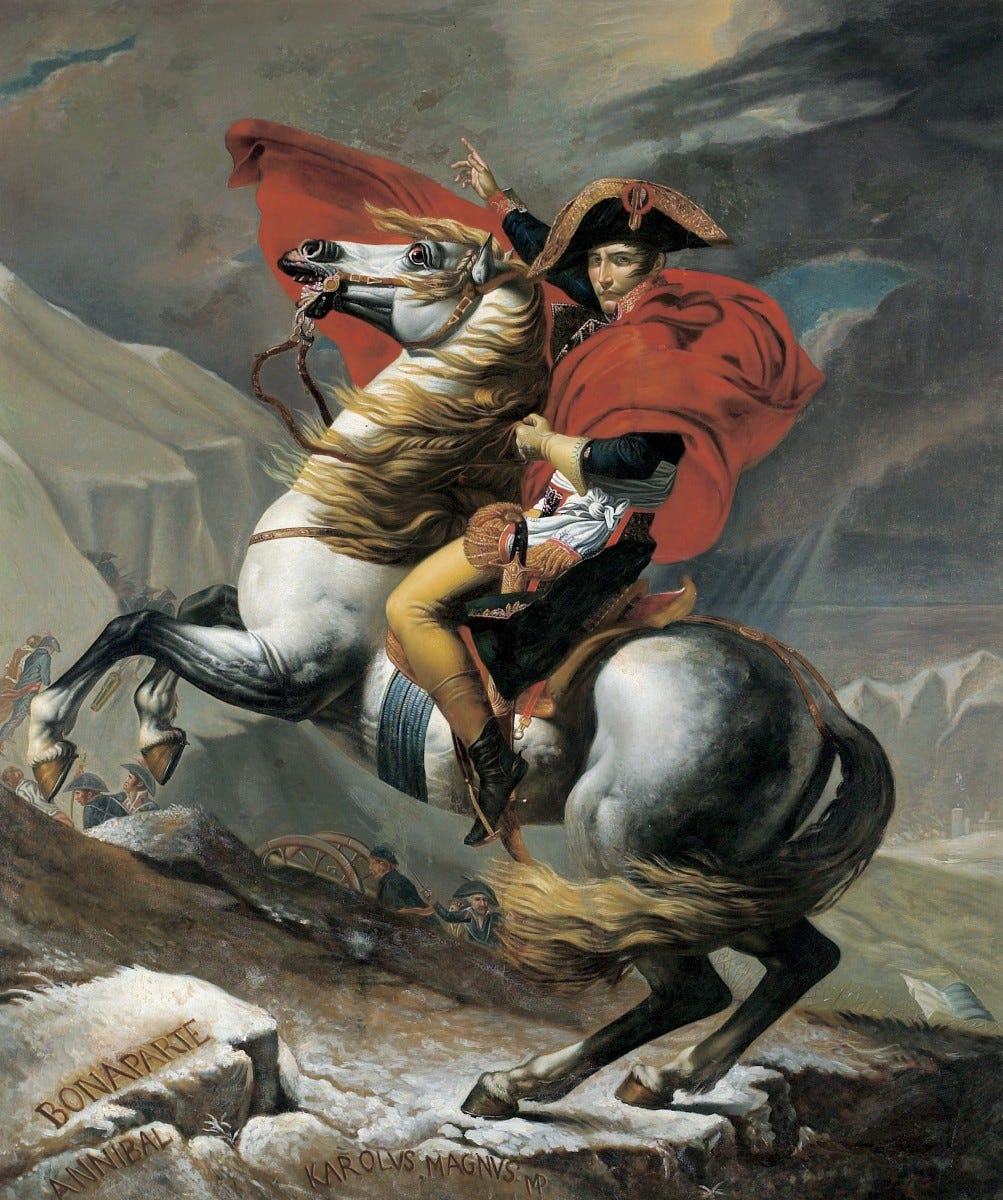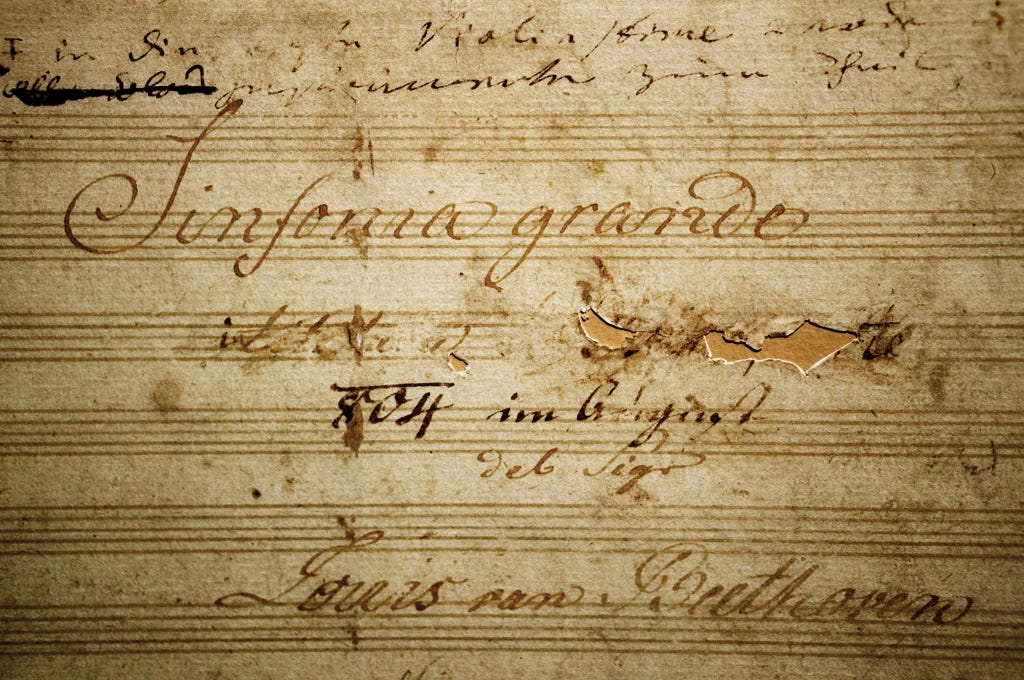
On this day, April 7, in 1805, Beethoven premiered a symphony that history has deemed to be the piece that truly broke the mold of all previous compositions with symphony in the title. A great example of what I like to fondly call the “Highlander Syndrome” (there can only be one) is this very well-produced and typically well-acted BBC docudrama.
Certain historians, particularly musical ones, have a need to create a singular thread, as if the entirety of the artform has been a series of singular achievements, handed off from artist to artist, like some endless long distance relay race. While it’s certainly understandable to want to parse out and disseminate history in a digestible format, does it also inadvertently shadow the truth?
Unfortunately for us this documentary, as well as practically every other telling of this very important historical event, tells only half of the story of that incredible concert, because Beethoven’s symphony was only half of the concert! On that other half was another symphony in E-flat by the sadly forgotten composer, Anton Eberl, who died just two years later in 1807. For Eberl to not even get a bit part in the BBC film above, as well as the annals of history is just, well, sad. I strongly recommend that you take the time now to listen to Eberl’s symphony, performed by Concerto Köln and conducted by Werner Ehrhardt.
Now, I’d like you to listen to Beethoven’s Symphony №3 in this wonderful performance by Orchestre Révolutionnaire et Romantique (also on period instruments) conducted by John Eliot Gardiner.
Without doubt, right after those first two famous THWACKS you can hear that Beethoven’s symphony is certainly harder to play and the sheer scope of the Beethoven’s symphony is much grander, 50% longer than Eberl’s! These two salient point would not have been missed by even the least musical attendee at that premiere. However, like the original reviewer in the Allgemeine Musikzeitung, I agree that Eberl’s symphony is “extraordinarily well conceived, full of incisive and new ideas.” I would also argue that it’s no less dramatic and shocking than Beethoven’s symphony and it certainly contains the same fervor and clenched-fistedness that we often only associate with Beethoven. Why?
Like all art, it’s always a good idea to sniff around its edges and see what was happening in the artist’s life, both personal and public, at the time of the works genesis and creation. One of the most obvious and most famous is the story of its original dedication. Beethoven famously scratched out, and so furiously that he scratched a hole in the paper, the original dedicatee of this symphony, Napoleon Buonaparte.

Like so many ascending middle-class — the bourgeoisie — Beethoven was inspired by the American revolution and, more importantly, the French revolution. Under the guise of spreading the revolutionary ideals of liberté, égalité, fraternité, Napoleon was sweeping through Europe, overturning out-of-touch monarchies. But, on May 14, 1804, Napoleon proclaimed himself the Emperor of the French and this threw Beethoven into one of his frequent rages. When the score was finally published in 1806, in of its original title, Buonaparte Symphony, Beethoven changed it to, Heroic Symphony, with the inscription, “composed to celebrate the memory of a great man.”
Enough of that! Let’s get to some of my favorite recordings and performances. One of the great Beethoven interpreters, Wilhelm Furtwängler, gave many fine performances, but it is his 1944 performance with the Vienna Philharmonic that I keep returning to.
And one of the greatest examples of what the conductor George Szell achieved with the Cleveland Orchestra is their recording of the Eroica.
Sir Roger Norrington always brings a playful integrity to everything he conducts and his ethos has always seemed to really be a good fit for Beethoven.
Another very engaged approach, by both the conductor and orchestra, are the performances and recordings of Paavo Järvi and the Deutsche Kammerphilharmonie Bremen.
And, finally, here’s a very lyrical and probing performance with Claudio Abbado with the Lucerne Festival Orchestra.